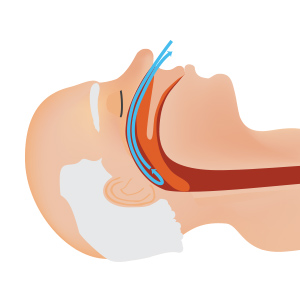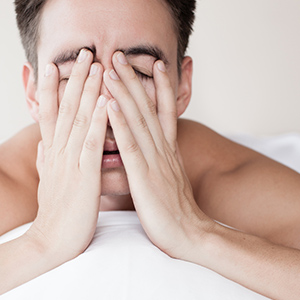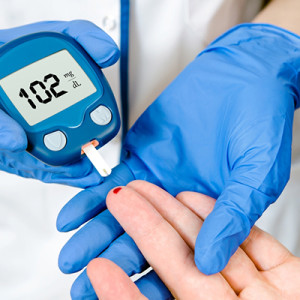Posted on Thursday, March 3rd, 2016 at 4:46 pm
Diabetes and obstructive sleep apnea (OSA) affect millions of people in the United States and around the world, but is there a link between the two? The answer (perhaps not too shocking) is a resounding “yes.”
That being said, the link between the two gets a little complicated when you start to sift through all of the data associated with diabetes and OSA, which is why we’re writing this article for you. Here we’re going to bring that information to you in a straightforward, easy-to-understand manner.
If you have diabetes and think you may also be suffering from sleep apnea, this article is for you. More importantly, if you’re in the Babylon, Patchogue or greater South Shore Long Island area and are interested in learning more about our OSA treatment options, we encourage you to contact us here.
The chicken & egg debate: OSA vs diabetes

In this particular case, there is evidence to suggest that OSA is a risk factor for diabetics, with roughly 50% of all diabetics suffering from obstructive sleep apnea. On the other side, there is also ample evidence to suggest that roughly 1 in 3 individuals suffering from OSA will develop diabetes at some time in their life.
The bottom line is this: if you suffer from diabetes, there’s a 50/50 chance you’ll develop obstructive sleep apnea. If you suffer from OSA, there’s a 33% chance (roughly) that you’ll develop diabetes at some point in your life.
The point here isn’t to determine which causes the other, but to understand that if you have one of these conditions, there’s a significant risk of developing the other as you get older.
How OSA can lead to diabetes

Fortunately, at this stage, your brain sends stress hormones to the bloodstream, forcing you to wake up and take a breath.
Obviously this isn’t a healthy pattern, and when it continues to repeat itself as part of a vicious cycle of waking and gasping for air, blood sugar levels become elevated and impair insulin sensitivity. This, in turn, leads to glucose intolerance and can eventually result in diabetes.
Understanding the science behind it isn’t as important as understanding the fact that untreated OSA has the very real potential of leading to other serious health issues like diabetes. In fact, in another article we recently published, there’s even a potential link established between OSA and dementia.
How diabetes can lead to OSA
Just as untreated OSA can lead to diabetes, it’s important to keep your diabetes under control in order to minimize the risk of developing obstructive sleep apnea. Without diving too much into the science, it’s safe to say that a large percentage of people who suffer from diabetes also struggle with being overweight or obese.
One of the main problems is that diabetics who are overweight carry excess tissue around their neck, which further aggravates OSA and makes it more difficult to breath. It’s not just more difficult to exercise or walk around the house when you’re overweight, it’s more physically taxing on your body to perform the routine tasks that keep you alive.
Do you think you have obstructive sleep apnea?

Maybe you’re on the fence and you’re thinking, “I know I need to see a doctor about this, but I don’t want to wear a loud, heavy, bulky CPAP mask while I sleep.” Fortunately for you there’s an alternative known as an oral appliance that thousands of sleep apnea sufferers are finding to be a much better alternative to CPAP.
To learn more about these oral devices, visit this page. If you would like to schedule your OSA evaluation and consultation, please contact us.